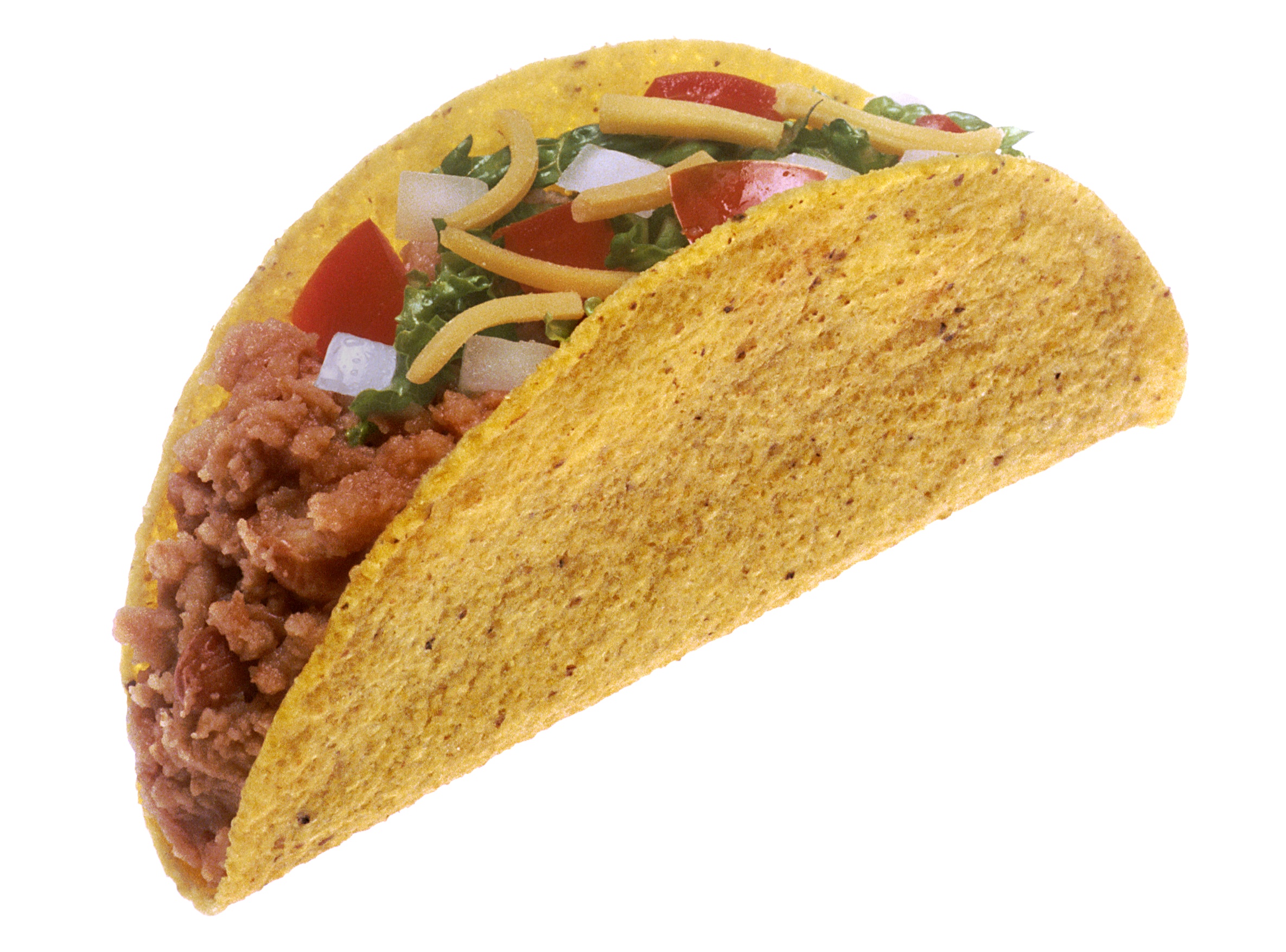The first genetically engineered crop, the Flavr Savr tomato, became available for consumption in the U.S. in 1994. Developed by Calgene, the Flavr Savr tomato was developed to satisfy the customer by giving the tomato a longer shelf life. After the failure of the Flavr Savr tomato the agriculture biotechnology industry shifted their focus from the consumer to the farmer. Today, no genetically modified tomatoes are sold in supermarkets. Instead, the majority of genetically engineered crops today are staple crops such as corn and soybeans. Biotechnology companies have since marketed their genetically engineered seeds towards farmers, and have advocated for the benefits such as larger yields and resistance to pests. In twenty years GMOs have stirred up debate and controversy in government, the public, and in the scientific community.

Taco Bell’s taco shell was one of the products found to have the non-FDA approved StarLink Corn. Photo Courtesy of Wikipedia Commons.
Prior to the FDA approval of the first genetically engineered crop, researchers at the FDA found that GMOs posed no risk to humans, and emphasized the minimal dangers to environment. The approval resonated with the public, and in the 1990s 70% of the U.S. supported genetically modified foods. After the failure of the Flavr Savr tomato, the approval process of genetically modified food continued to develop and public opinion remained in favor of GMOs. Shifts in the public view occurred with the advent of environmental groups such as Organic Consumer Association that gained community mobilization by educating citizens on GMOs while pushing for labeling at the federal and state level.
Calgene decided to label the Flavr Savr tomato in order to be as transparent as possible. However, when Monsanto acquired Calgene, they decided not to label their GE crops, and other companies followed. The FDA’s Center for Food Safety and Applied Nutrition generally opposed labeling unless the crop’s nutritional value was significantly modified. In an interview in 1993, Jim Maryanski of the FDA said labeling GMOs would “‘increase the cost of these foods to consumers and would disrupt our complex food distribution system,’’. After a period of public approval of GMOs, the environmental movement was successful in changing the opinion of many Americans. In 2001 a survey conducted by the Pew Initiative on Biotechnology showed that only 25% were in favor of GMOs. Public perception continued to evolve, but the FDA remained firm in their findings that GMOs were not of concern to human health and the environment. Confidence in the food industry took a big hit in 2000 when it was discovered by environmental group Genetically Engineered Food Alert that StarLink, a genetically modified corn, was found in hundreds of food products despite not receiving FDA approval for human consumption. It was the first recall of a genetically engineered crop, and was seen as a turning point in terms of tougher regulations for the biotech industry.
After the StarLink recall, the FDA began to make regulatory changes. In 2001 the FDA announced that GMO food developers would be required to submit data on their GE crop at least 120 days before releasing it into the market. Stricter regulations coupled with decreasing public approval lead to an environmental movement focused on labeling GMOs in the marketplace. Advocates of GMO labeling have based their campaigns on the right to know. Despite many pushing for labeling, one of the biggest obstacles environmentalists and concerned citizens face is well-funded lobbyers that have significant political influence in policymaking.
Under frequent pressure from agricultural biotech companies, the US continues to be the strongest advocate for GMOs of any developed nation and continues to support soft regulation, especially in respect to labeling. In the US, most grassroots efforts for GMO labeling have occurred at the state level. Currently, only Connecticut and Maine have laws requiring labels for GMOs. However, the laws came with a trigger clause and won’t kick in until surrounding New England states pass the same legislation. In comparison, more 60 nations around the world require labeling, including South Africa, Turkey, China, and 27 members of the EU. Despite labeling not occurring at federal and state levels, many companies have willingly decided to label their products. Whole Foods Market in 2013 announced that all GMO products sold in Whole Foods Stores in America and Canada would we labeled by 2018.
Since GMOs entered the market, public opinion has shifted and there has been some regulatory changes made by the FDA. However, the FDA still emphasizes the safety of GMOs and the biotech industry continues to emphasize the benefits. Despite the increase in public concern and many companies labeling on their own, the FDA has yet to make any fundamental changes to the regulatory framework that governs biotech industries, and they continue to encourage research in the field and oppose labeling.